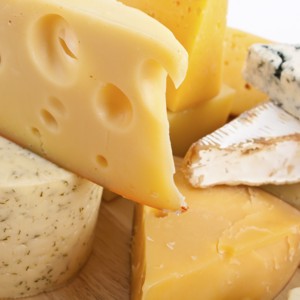I use the term ‘cheesy’ here in several senses, not the least of which is to take a poke at Hip Hop Music which, I confess, I don’t understand at all. But it seems Cheese has a taste for Hip Hop – and it’s ‘sweet’.
No, Cheese doesn’t have ears. Nevertheless, researchers at Bern Switzerland’s University of the Arts (HKB) partnered with local Cheese company K3 to conduct what at first seems a silly if not downright pointless study of how aging Cheese reacts to different types of music.
What they did…
Under the guidance of Michael Harenberg, Director of Studies at Sound Arts HKB, students subjected 8 wheels of a semi-hard Cheese to different music styles while they aged for 6 months in the caves. Another identical wheel was set aside to age un-serenaded, to be used for comparison in subsequent tests.
What they found…
After the aging period was over, the Cheese wheels were sampled for testing both in the lab and by expert human tasters. To their surprise, both the lab tests and the live taste tests revealed slight but measurable chemical, flavour and texture differences in the test Cheeses.
Perhaps the most surprising discovery was that the Cheese wheel exposed to Hip Hop music came out of its ordeal tasting slightly but definitely sweet.
The takeaway…
It appears that the administration of music to cultured products such as Cheese (and maybe, by association, Yogurt and Sour Cream, too) can materially effect the character and composition of the final product.
My take…
We’ve known for years that plants respond in various ways to having music played in their growing environments. In hose studies, which have been replicated many times, plants thrived when played Classical music and suffered premature death when played Rock and Roll.
Now, it appears that various styles of music played during the maturation process can materially effect the flavour, texture and chemical makeup of Dairy products – particularly those employing living cell cultures in their manufacture. I’d love to see someone do the Cheese experiment with Bread (which uses Yeast for leavening) and Beer and Wine (Yeast, again).
It’s been suggested that the Cheese experiment will be looked back upon as the beginning of a whole new science – food manipulation using sound. Maybe…
But I have a theory which I think could explain why music has such effects on living things. Without going too deeply into thre well-known theories about how music can ‘soothe the savage breast’, I wonder if what we’re looking at – whether with Cheese, plants or people – is the fudamental effect of music, which is by definition complex patterns of vibrations, causing beneficial (or sometimes, as in plants, harmful) effects in our bodies and brains, by effecting our organic chemistry directly. Humans may credit emotional forces for their being moved by the sound of music, but I think science will eventually show that different frequencies, mixtures and patterns of physical vibrations can produce catalysing effects on the chemical processes in living things.
Now, there’s a big, fat, juicy field for further study!
~ Maggie J.

